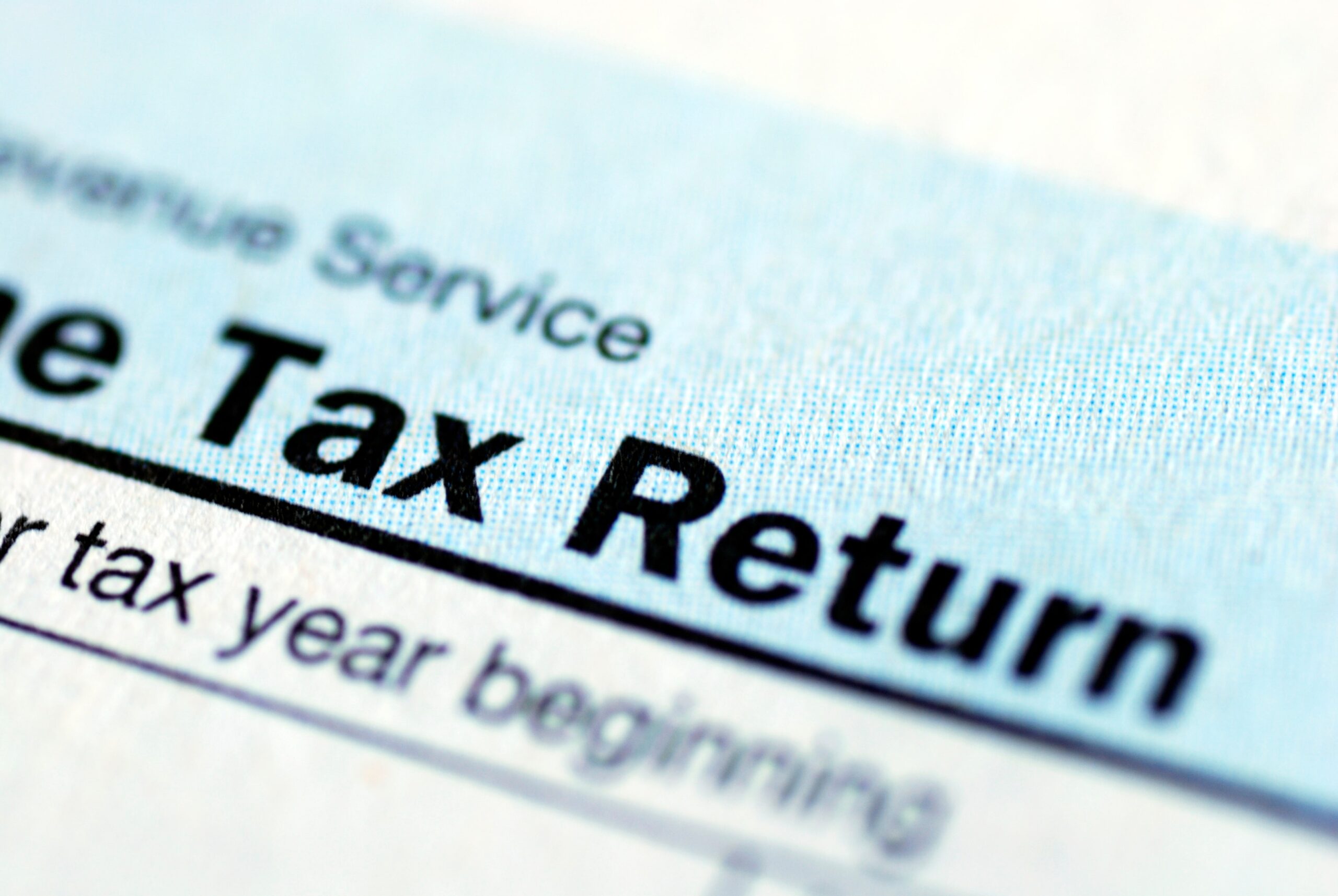This comprehensive guide will walk you through the most important steps and requirements to successfully register business in Malta, from selecting the right company type to meeting post-registration obligations. Malta is known for its thriving business environment, strategic Mediterranean location, and attractive tax incentives. For foreign investors and local entrepreneurs alike, registering a company in Malta offers access to the European and North African markets, a business-friendly environment, and an efficient registration process. Those who want to register a yacht in Malta often open a company to maximize the benefits, taking advantage of the favorable tax system and legal framework that Malta provides.

1. Choosing the Right Company Type
The first step in registering a company in Malta is selecting the type of business entity that best suits your needs. Malta offers a variety of legal and judicial representatives of company structures that cater to different business sizes and purposes:
- Private limited liability company (LLC): This is the most popular choice for foreign investors looking to establish a presence in Malta. It provides limited liability protection, ensuring that the personal assets of shareholders are safeguarded in the event of business liabilities. To set up a private LLC, the minimum share capital required is €1,165, with at least 20% of the capital paid up upon registration.
- Public limited liability company: This is suitable for larger businesses, especially those looking to raise capital through public share offerings. The minimum share capital for a public company is €46,588, with at least 25% paid up before starting operations. This type of company is often chosen by firms looking to expand internationally.
- Limited partnership: This structure is ideal for businesses where one or more partners want to limit their liability. A limited partnership must have at least one general partner, who holds unlimited liability, and one limited partner, whose liability is capped based on their contribution.
- Sole proprietorship: A simple business structure where the company is owned and operated by a single individual. A sole proprietorship carries unlimited personal liability, meaning the owner is responsible for all debts and obligations incurred by the business.
- Private exempt companies: These companies must meet specific conditions to be classified as exempt, such as having a limited number of shareholders and restrictions on share transfers. The benefits of this status include simplified financial reporting and the ability to offer loans to directors. Legal guidance is available for those interested in this business structure.
2. Choosing a Unique Company Name
Choosing a unique company name is a crucial step in the process of registering a company in Malta. The name must be original and not already in use by another company. It is also important to ensure that the name is not offensive or misleading. The Malta Business Registry (MBR) has guidelines and regulations in place to ensure that company names comply with these requirements.
When selecting a company name, it is recommended to choose a name that is easy to remember and reflects the nature of the business. The name must also include the suffix “Limited” or “Ltd” to indicate that it is a limited liability company.
It is also important to note that certain words may require special permission from the MBR before they can be used in a company name. These words include “bank”, “insurance”, and “financial services”.
To ensure that the chosen name is available, it is recommended to conduct a search of the MBR’s database before submitting the application. This can be done online or through a registered agent or local firm.
Once the name of conduct business has been approved, the company can proceed with the registration process.
2. Preparing Necessary Documentation
Once you’ve chosen the appropriate company type, the next step is to gather the required documentation for the company formation and registration process. The key documents needed include:
- Memorandum and Articles of Association: These documents outline the company’s purpose, internal regulations, share capital structure, and responsibilities of directors. The company’s memorandum is a foundational legal document required for the registration process.
- Company registration application: This application must be submitted to the Malta Business Registry. It includes details such as the company name, the registered office address, the names of directors and shareholders, and other pertinent information.
- Proof of identity and address: All directors, shareholders, and the company secretary must provide valid identification and proof of residence.
- Certificate of good standing: If the company is already registered in another jurisdiction, you may need to provide a certificate of good standing to prove its legality and operational status.
3. Registering with the Malta Business Registry
After gathering the necessary documents, you will need to submit your company registration application to the Malta Business Registry. This self registration, is a vital step in setting up your business in Malta. Here’s the process:
- Submit the registration application: Include all supporting documentation, such as the Memorandum and Articles of Association, proof of identity, and the company’s share structure.
- Pay the registration fee: The registration fee varies depending on the company’s authorized share capital. For companies with a larger capital base, the fee will be higher.
- Obtain the certificate of registration: Once your application is approved, the Malta Business Registry will issue a certificate confirming your company’s legal status. This document allows you to start conducting business in Malta.
4. Post-Registration Requirements

After completing the registration process, several post-registration obligations must be met to ensure compliance with Maltese laws:
- Register for VAT: Any company in Malta with an annual turnover exceeding €35,000 is required to register for VAT. VAT returns must be filed quarterly, and the applicable VAT rate is 18%.
- Obtain a tax identification number: All registered companies must acquire a tax identification number from the Inland Revenue Department. This number is used to manage corporate tax obligations.
- Appoint a company secretary: Every company in Malta must appoint a company secretary, who ensures the company complies with Maltese corporate laws. The secretary is responsible for filing annual returns, managing company records, and ensuring that shareholders and directors follow legal procedures.
- Maintain a registered office address: The company must have a physical office address in Malta where legal documents can be served. This registered office address must be regularly maintained and updated with the Malta Business Registry if changes occur.
- Hiring employees: If your business plans to hire staff, you must adhere to Maltese employment laws, which include signing contracts, providing benefits, and ensuring employee rights are respected.
5. Taxation and Licenses

Malta’s corporate tax rate stands at 35%, but businesses may benefit from significant tax refunds under the Malta taxation and income tax refund system, reducing the net effective tax rate to as low as 5%. Malta’s tax framework is designed to attract foreign investors by offering attractive incentives. VAT is set at 18%, but reduced rates apply to certain goods and services.
Some business activities, such as financial services, gaming, and specific professional services, require special licenses. Before starting business operations however, ensure your company holds the necessary permits to a business account to avoid penalties.
6. Meeting Minimum Share Capital Requirements
The capital requirements for starting a company depend on the type of company legal representative of business:
- Private companies: A minimum share capital of €1,165 is required, with at least 20% paid up before registration.
- Public companies: These businesses require a minimum share capital of €46,588, with at least 25% paid up. The rest of the capital can be raised through public offerings or other means.
These capital requirements must be met to ensure that companies register in compliance with Maltese regulations. The paid-up share capital of limited liability companies should be deposited in a company bank account, and proof of deposit may be required during registration.
7. Appointing Directors and Shareholders
The company’s registered office must appoint at least one director for a private company and two directors for a public company. Directors can be individuals or legal entities, and they are responsible for overseeing the company’s management and operations.
In addition to directors, the company must also appoint shareholders. Shareholders can be individuals or other companies and hold ownership stakes in the company. The beneficial owner of the company’s legal director must also be disclosed to ensure transparency and compliance with anti-money laundering laws.
8. Registering for VAT
If your single member company has an annual turnover exceeding €35,000, it must be registered for VAT. The VAT registration process can vary depending on the business or single member company’s size and activity. Once registered, VAT returns must be submitted quarterly, and VAT payments should be made on time to avoid penalties.
Benefits of Registering a Company in Malta

Malta offers numerous advantages for businesses, including:
- Tax-efficient corporate structure: With a corporate tax rate of 35%, businesses can benefit from generous tax refunds and deductions, resulting in a net effective tax rate as low as 5%.
- Strategic location: Situated at the crossroads of Europe, North Africa, and the Middle East, Malta provides access to key markets in these regions.
- Business-friendly environment: Malta’s legal framework and efficient business registration procedure make it easy for companies to establish themselves with minimal bureaucracy.
- Favourable tax system: Malta has implemented tax treaties with over 70 countries, providing businesses with reduced tax burdens and a robust malta taxation refund system.
Costs Associated with Registering a Company
The costs of registering a company in Malta vary depending on income tax number and the company’s size and structure:
- Registration fee: Based on the company’s share capital, the registration fee can range from a few hundred to several thousand euros.
- Annual fees: Ongoing fees are required to maintain the company’s registration with the Malta Business Registry.
- Corporate services: Businesses may need to hire corporate services providers for accounting, auditing, tax advisory, and compliance, which adds to the overall cost.
Timeframe for Registration
The process to register a new company name in Malta typically takes 2 to 3 weeks, depending on the complexity of the application and the completeness of the submitted documents. Once approved, the Malta Business Registry will issue the new company’s certificate of registration, allowing the business to begin operations.
Foreign Ownership and Registration
Malta allows 100% foreign ownership of companies, making it an attractive destination for foreign investors. The registration process for foreign-owned companies is the same as for Maltese-owned businesses, though additional documentation may be required to verify the foreign owners of overseas companies’ identities.
Frequently Asked Questions
Q: What is the minimum share capital required to register a company in Malta? A: The minimum share capital required to register a private limited liability company in Malta is €1,164.69, while the minimum share capital required to register a public limited liability company is €46,587.47.
Q: What is the role of the company secretary in a Maltese company? A: The company secretary is responsible for ensuring that the company complies with all relevant laws and regulations, including the Companies Act. The company secretary must be a natural person and must be resident in Malta.
Q: What is the difference between a private exempt company and a public limited liability company in Malta? A: A private exempt company is a type of company that is exempt from certain requirements, such as the requirement to have a minimum number of shareholders. A public limited liability company, on the other hand, is a type of company that is required to have a minimum number of shareholders and is subject to stricter regulations.
Q: What is the registration fee for registering a company in Malta? A: The registration fee for registering a company in Malta depends on the authorized share capital of the company. The fee ranges from €245 to €2,250.
Q: Can a foreigner register a company in Malta? A: Yes, foreigners can register a company in Malta. There are no limitations based on nationality, tax status or residency.
Q: What is the role of the Malta Business Registry in the registration process? A: The Malta Business Registry is responsible for registering new companies, processing documents related to companies registered, and issuing certified documentation.
Q: How long does it take to register a company in Malta? A: The registration process typically takes around two weeks.
Q: What is the corporate tax rate in Malta? A: The corporate tax rate in Malta is 35%. However, companies may be eligible for tax deductions and refunds, which can reduce the effective tax rate.
Q: What is the VAT rate in Malta? A: The standard VAT rate in Malta is 18%. However, there are reduced VAT rates of 7% and 5% for certain goods and services.
Q: Can a company in Malta have a registered office address outside of Malta? A: No, a company in Malta must have a registered office address within Malta.
Q: What is the role of the company’s legal director in a Maltese company? A: The company’s legal director is responsible for ensuring that the company complies with all relevant laws and regulations, including the Companies Act.
Q: What is the difference between a limited partnership and a public limited liability company in Malta? A: A limited partnership is a type of partnership that has at least one general partner with unlimited liability and one or more limited partners with limited liability. A public limited liability company, on the other hand, is a type of company that is required to have a minimum number of shareholders and is subject to stricter regulations.
Q: What is the role of the legal and judicial representatives in a Maltese company? A: The legal and judicial representatives are responsible for representing the company in legal proceedings and ensuring that the company complies with all relevant laws and regulations.
Q: What is the difference between a private company and a public limited liability company in Malta? A: A private company is a type of company that is not required to have a minimum number of shareholders and is subject to less stringent regulations. A public limited liability company, on the other hand, is a type of company that is required to have a minimum number of shareholders and is subject to stricter regulations.
Q: What is the role of the company formation agent in the registration process? A: The company formation agent is responsible for assisting with the registration process, including preparing and submitting the necessary documents and ensuring that the company complies with all relevant laws and regulations.
Q: What is the difference between a registered office address and a business address in Malta? A: A registered office address is the official address of the company, which is used for official correspondence and notifications. A business address, on the other hand, is the address where the company conducts its business activities.
Q: What is the role of the corporate services provider in Malta? A: The corporate services provider is responsible for providing a range of services, including company formation, company secretarial services, and accounting and auditing services.
Q: What is the difference between a private exempt company and a limited partnership in Malta? A: A private exempt company is a type of company that is exempt from certain requirements, such as the requirement to have a minimum number of shareholders. A limited partnership, on the other hand, is a type of partnership that has at least one general partner with a general or limited partnership with unlimited liability and one or more limited partners with limited liability.
Q: What is the role of the company legal representative in a Maltese company? A: The company legal representative is responsible for ensuring that the company complies with all relevant laws and regulations, including the Companies Act.
Q: What is the difference between a public limited liability company and a private exempt company in Malta? A: A public limited liability company is a type of company that is required to have a minimum number of shareholders and is subject to stricter regulations. A private exempt company, on the other hand, is a type of company that is exempt from certain requirements, such as the requirement to have a minimum number of shareholders.
Q: What is the role of the registered agent in the registration process? A: The registered agent is responsible for assisting with the registration process, including the first company secretary preparing and submitting the necessary documents and ensuring that the company complies with all relevant laws and regulations.
Q: What is the difference between a company in Malta and a branch in Malta? A: A company in Malta is a separate legal entity that is registered with the Malta Business Registry. A branch in Malta, on the other hand, is a part of a foreign company that is registered with the Malta Business Registry.
Q: What is the role of the company secretary in a Maltese company? A: The company secretary is responsible for ensuring that the company complies with all relevant laws and regulations, including the Companies Act. The company secretary must be a natural person and must be resident in Malta.
Q: What is the difference between a private company and a limited partnership in Malta? A: A private company is a type of company that is not required to have a minimum number of shareholders and is subject to less stringent regulations. A limited partnership, on the other hand, is a type of company’s status of partnership that has at least one general partner with unlimited liability and one or more limited partners with limited liability.
Q: What is the role of the legal and judicial representatives in a Maltese company? A: The legal and judicial representatives are responsible for representing the company in legal proceedings and ensuring that the company complies with all relevant laws and regulations.
Q: What is the difference between a public limited liability company and a limited partnership in Malta? A: A public limited liability company is a type of company that is required to have a minimum number of shareholders and is subject to stricter regulations. A limited partnership, on the other hand, is a type of partnership that has at least one general partner with unlimited liability and one or more limited partners with limited liability.
Q: What is the role of the company formation agent in the registration process? A: The company formation agent is responsible for assisting with the registration process, including preparing and submitting the necessary documents and ensuring that the company complies with all relevant laws and regulations.
Q: What is the difference between a registered office address and a business address in Malta? A: A registered office address is the official address of the company, which is used for official correspondence and notifications. A business address, on the other hand, is the address where the company conducts its business activities.
Q: What is
Conclusion
Registering a company in Malta is a straightforward process that offers significant advantages for businesses looking to expand into Europe and beyond. With its favourable tax system, strategic location, and business-friendly environment, Malta is an ideal base for international operations. By following these steps and meeting all legal requirements, you can successfully establish your business in Malta and take advantage of the numerous benefits the country has to offer.
